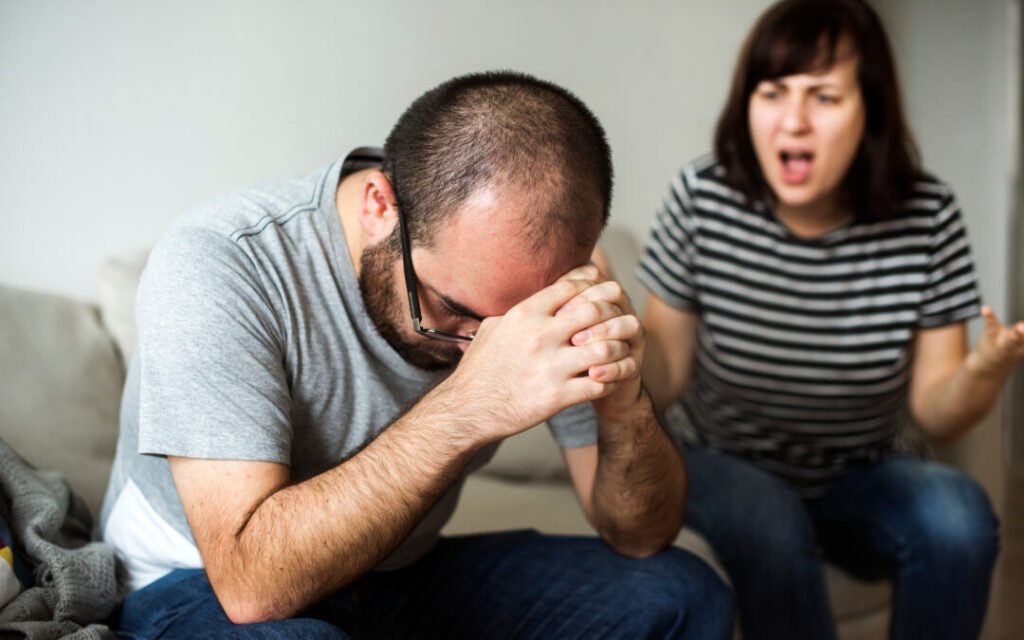Family violence cases are some of the most sensitive and challenging matters handled by Georgia’s courts. Allegations of abuse can result in protective orders that significantly affect both the accused and the accuser. For individuals facing these situations, it is important to understand how protective orders work, the impact they can have, and why legal representation may be essential.
This article explains the basics of protective orders in Georgia, their consequences, and how working with a Lawyer for Domestic Battery Cases in Georgia can help protect your rights and future.

Get Trusted Legal Guidance in Georgia Family Violence Cases
Facing a protective order or family violence allegation can have lasting effects on your life, relationships, and reputation. Having an experienced defense lawyer by your side can make a critical difference in protecting your rights and ensuring your voice is heard.
For compassionate, skilled representation in Georgia, contact today:
📍 Address: 2100 Westshore Drive, Suite 119, Cumming, Georgia 30041
📞 Phone: (470) 505-9791
📧 Email: jennifer@lawofficeofjenniferscalia.com
What Is a Protective Order?
A protective order sometimes referred to as a restraining order is a court-issued directive intended to protect individuals who claim they are victims of family violence. These orders are designed to prevent alleged abusers from contacting or approaching the accuser.
Protective orders can restrict a person from:
- Having direct or indirect communication with the alleged victim
- Entering a shared residence
- Visiting certain places, such as workplaces or schools
- Possessing firearms in some circumstances
Because protective orders can be granted quickly, they often catch people off guard. If issued, they can lead to significant disruptions in family life, housing, and even employment. Seeking immediate guidance from a Lawyer for Domestic Battery Cases in Georgia is a vital step in responding appropriately.
Types of Protective Orders in Georgia
There are two primary types of protective orders in family violence cases:
Temporary Protective Orders (TPOs)
- These are often issued quickly and without the accused being present in court.
- A TPO may last for up to 30 days, but in some cases, it can be extended until a full hearing takes place.
Permanent Protective Orders
- After a hearing where both sides present evidence, a judge may grant a longer-term order.
- These can remain in effect for several months or even years, depending on the case.
Understanding the distinction between temporary and permanent orders is crucial. Both carry serious consequences, and violations can result in criminal charges. For this reason, consulting with an affordable criminal lawyer in Gainesville, GA is highly recommended.
How Protective Orders Are Granted
Protective orders in family violence cases are often granted based on testimony from the alleged victim. Judges typically err on the side of caution to ensure immediate safety. However, this process means that individuals can face restrictions before they have an opportunity to defend themselves.
At the full hearing, the accused can present evidence, cross-examine witnesses, and argue against the protective order. This is where representation by an attorney criminal defense in Gainesville, GA can be particularly effective. A strong defense may prevent a temporary order from becoming permanent.
Consequences of Protective Orders
The impact of a protective order goes far beyond legal restrictions. Some of the consequences include:
- Losing access to one’s home if shared with the accuser
- Being separated from children during custody disputes
- Limitations on professional licenses and employment opportunities
- Long-term damage to personal and professional reputation
Additionally, violating a protective order can result in arrest, fines, or even jail time. These serious consequences highlight the importance of having the best criminal attorney in Gainesville, GA review and respond to the case.
Defending Against Protective Orders
If you have been served with a protective order, it is important to act quickly and carefully. Some possible defense strategies include:
- Challenging the credibility of the accuser – Exposing inconsistencies in the accuser’s story.
- Presenting witness testimony – Family members, friends, or coworkers may provide helpful context.
- Offering documentary evidence – Texts, emails, or call logs can sometimes contradict allegations.
- Highlighting lack of physical evidence – In cases where no corroborating proof exists.
A skilled Lawyer for Domestic Battery Cases in Georgia will evaluate every detail of the case to build a strong response and protect your rights.
Why Legal Representation Matters
Protective orders can have life-altering consequences, and once in place, they can be difficult to challenge. Attempting to navigate the process without proper legal knowledge can leave you vulnerable.
With the guidance of an experienced attorney criminal defense in Gainesville, GA, you gain:
- A thorough understanding of your rights and options
- Representation during hearings and court appearances
- Assistance gathering evidence to challenge allegations
- Advocacy that ensures your side of the story is heard
For many, partnering with an affordable criminal lawyer in Gainesville, GA provides peace of mind and a stronger chance at a fair outcome.
The Connection Between Family Violence Cases and Criminal Charges
In Georgia, protective orders often overlap with criminal allegations such as domestic battery or assault. A person may face both civil restrictions from a protective order and criminal prosecution simultaneously.
This dual process can feel overwhelming, but with the right legal help, it is possible to address both sides of the case. Working with a Lawyer for Domestic Battery Cases in Georgia ensures that your defense strategy considers the bigger picture and minimizes long-term risks.
Moving Forward After a Protective Order
Being accused in a family violence case is a frightening experience. However, it is important to remember that a protective order is not the same as a criminal conviction. With the right legal strategy, it is possible to contest unfounded allegations and protect your future.
The key is to act quickly, avoid violations of the order, and consult a Lawyer for Domestic Battery Cases in Georgia as soon as possible. Professional legal support can mean the difference between long-term restrictions and the opportunity to move forward with your life.
Contact Information
If you or someone you know is facing a protective order related to a family violence case, seeking legal guidance is an important step. You can connect for further assistance at:
Address: 2100 Westshore Drive, Suite 119 Cumming, Georgia 30041
Email: jennifer@lawofficeofjenniferscalia.com
Phone: (470) 505-9791
FAQs
1. How long does a protective order last in Georgia?
Temporary orders generally last up to 30 days, but after a hearing, a judge may issue a longer-term protective order lasting months or years.
2. What happens if I violate a protective order in Georgia?
Violating a protective order can result in arrest, fines, and jail time. It is critical to follow the order strictly while working with legal counsel on your defense.
3. Can protective orders be challenged or dismissed?
Yes. With strong evidence and legal advocacy, protective orders can sometimes be reduced, modified, or dismissed altogether. Consulting a Lawyer for Domestic Battery Cases in Georgia can help in pursuing this outcome.




